The Elephant & Castle regeneration has been hailed as a global example for sustainable growth. It has been declared an ‘Energy Action Area’ by the GLA and in 2009 it was fortunate enough to be selected by Bill Clinton as one of 16 worldwide projects signed up to the Clinton Climate Positive Development Program, which aims to create ‘carbon neutral’ urban development.
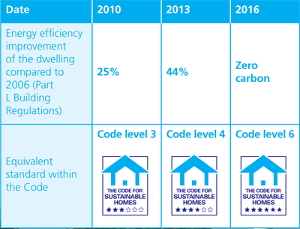 However, the Energy Statement in the recently submitted planning application for the redevelopment reveals that the ‘zero carbon’ target has fallen by the wayside and Lend Lease has missed the Clinton program’s boat: All forms of renewable energy provision have now been dropped from the development proposals.
However, the Energy Statement in the recently submitted planning application for the redevelopment reveals that the ‘zero carbon’ target has fallen by the wayside and Lend Lease has missed the Clinton program’s boat: All forms of renewable energy provision have now been dropped from the development proposals.
This is not just a blow for Southwark Council’s administration and Lend Lease’s sustainability credentials, but also a breach of planning law. Furthermore, if Lend Lease aren’t able to rush all the detailed planning applications through before 2016 it will also be a breach of building regulations - National Building Regulations state that all new homes built from 2016 onwards must be built to zero carbon standards and therefore comply with Code Level 6 of the Code for Sustainable Homes (CSH):
Lend Lease’s outline planning application proposes to build the new homes to CSH level 4 - the level 6 requirement is only binding on applications made from 2016 onwards.
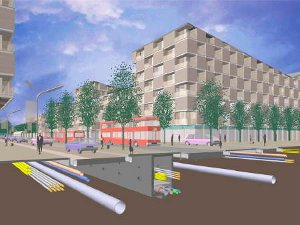 The ‘Fairly Tale’ Solution
The ‘Fairly Tale’ Solution
The original regeneration agreement included plans to provide a Multi-Utility Services Co. (MUSCo) renewable energy plant, which would be powered by a biomass CHP boiler fuelled by organic waste. The utility would provide environmentally-friendly heating, hot water and power to the Heygate redevelopment, the Heygate early housing sites, the Strata Tower and other new developments at the Elephant (Oakmayne/London 360/Leisure Centre). It was also going to supply the new Aylesbury estate development and the existing Salisbury and Newington housing estates, making it the largest biomass-fuelled district heating network in London and reducing the overall carbon footprint by a total of 70% compared to gas-fired boilers. However, the MUSCo plans were eventually dropped from the Lend Lease Regeneration Agreement because the estimated costs were too high. The scheme had become ‘a fairy tale’ according to Southwark’s head of regeneration.
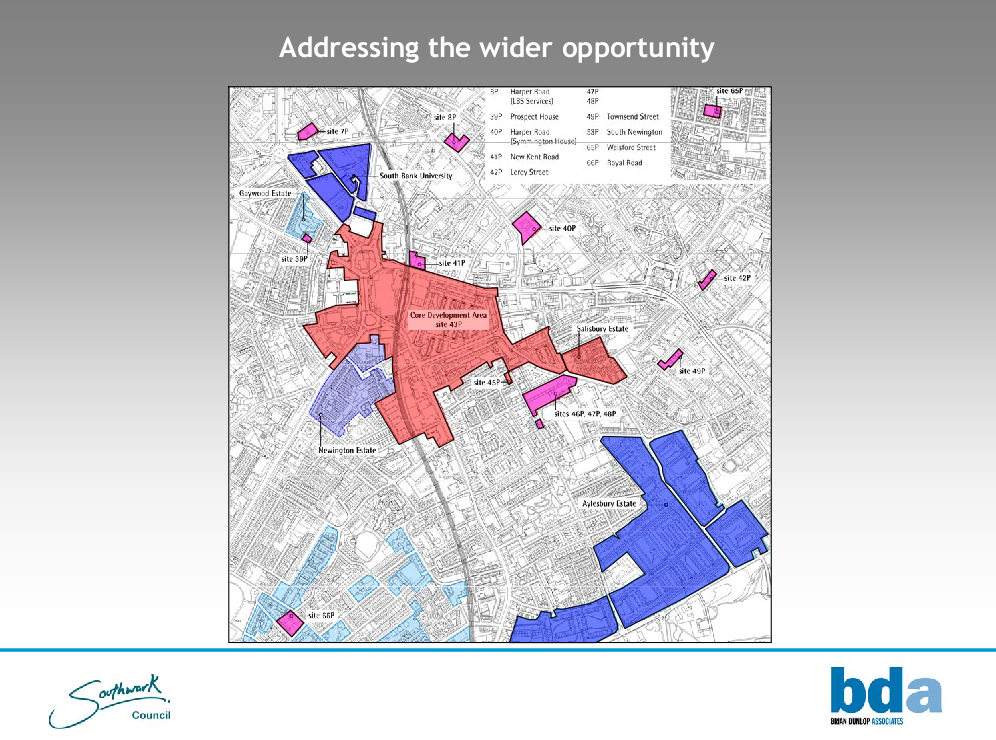
The ‘Boiler House’ Solution
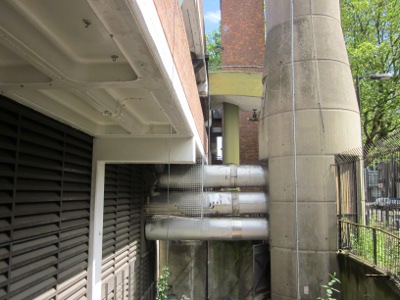
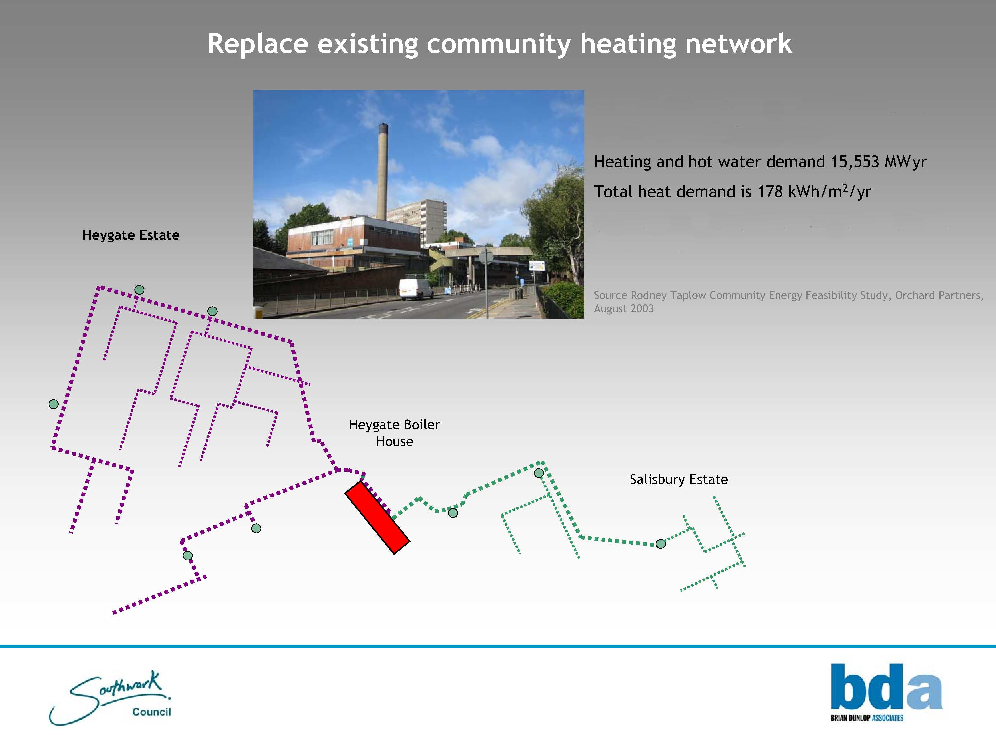
The implications of this for the E&C’s ‘zero carbon’ objectives are clearly far reaching, but putting these aside there is one further complication: Southwark Council has set a planning policy requirement that for all new major developments, 20% of the energy demand should be met by on-site renewable energy generation: “Major development must achieve a reduction in CO2 of 20% from using on-site or local low and zero carbon sources of energy.”
The originally planned biomass CHP boiler would have met this on-site reneweables requirement several times over. However, Lend Lease’s planning application states quite clearly that the ‘impact on commercial viability’ i.e. the high capital cost of a biomass boiler is the reason that it has been rejected.
Lend Lease acknowledges in its Energy Statement that its application does not currently fulfill this 20% on-site requirement. It attempts to mitigate this by claiming that it will seek to source some of its gas requirement in future from renewable gas sources. It states that one possible future source of renewable gas may be procured from biomethane plants located off site, which would work in the same way as green electricity currently does. However, the problem is that there is only one operational biomethane injection plant in the UK and this supplies just 200 homes. The obvious solution of course would be to build one, and it goes on in the Energy Statement to come very short of saying that it will do so: “Lend Lease will seek to work with the GLA, SC and others to locate a biomethane generating plant in London. This could mean that waste from the proposed Development could be used as an energy source.”
The Elephant Amenity Network are objecting to this application. We do not believe that the proposed development will contribute towards achieving the sustainability objectives set out in the local planning policy and the draft Elephant and Castle Master Regeneration Plan. In order to be acceptable, we are requesting that the current application is amended to include a firm commitment by Lend Lease - either to construct a biomethane generation unit or install a biomass CHP boiler, and to extend the DHN network to neighbouring estates and developments as was agreed in the Regeneration Agreement.
If you are a Southwark resident you can object to these plans. Just type your name, address and email address into the form below, and your objection will be sent directly to Southwark council’s planning office. A copy of your objection will also be sent to your local ward councillors. It is best if you use your own words but we have suggested some for you to start with:
If you don’t live in Southwark you can sign our petition to the Mayor of London asking him to have the planning application called in and reviewed:
